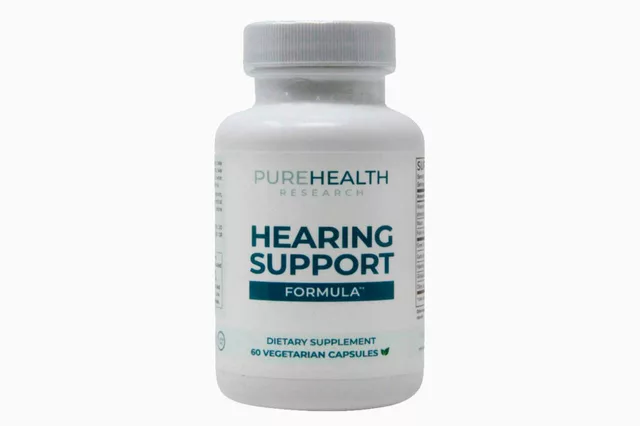Understanding Albuterol and Its Uses
As an asthma sufferer, I know firsthand how important it is to have an effective and reliable treatment plan in place. Albuterol has been a lifesaver for me, as it quickly relieves my asthma symptoms when they arise. For the uninitiated, albuterol is a bronchodilator that helps to relax the muscles in your airways and increase airflow to your lungs. It is commonly used to treat asthma, exercise-induced bronchospasm, and other breathing disorders.
While this medication has proven to be highly effective, it is essential to be aware of the potential side effects that may come along with its use. In this article, I will share my experiences and knowledge about the side effects of albuterol, how to manage them, and when to seek medical help. Let's dive into the topic!
Common Side Effects of Albuterol
As with any medication, albuterol may cause some unwanted side effects. From my experience and research, I have found that the most common side effects include:
- Shakiness or tremors
- Nervousness or anxiety
- Increased heart rate
- Dizziness or lightheadedness
- Headaches
- Dry mouth or throat irritation
- Muscle cramps
It's important to note that these side effects are generally mild and tend to subside as your body becomes accustomed to the medication. In my experience, these side effects have been manageable and have not significantly impacted my daily life.
Managing the Common Side Effects
Over the years, I have learned some useful tips on how to manage the common side effects of albuterol. Here are some strategies that have worked for me:
- Take slow, deep breaths to help calm your body and reduce nervousness or anxiety.
- Practice relaxation techniques such as meditation or yoga to help ease any tension or stress that may be contributing to your side effects.
- Stay well-hydrated to help minimize dry mouth and throat irritation. Drinking water or sucking on ice chips can provide relief.
- If you experience muscle cramps, gently stretch and massage the affected area to alleviate discomfort.
- For headaches, try over-the-counter pain relievers such as ibuprofen or acetaminophen, and ensure you are getting enough rest.
Remember, it's essential to give your body time to adjust to the medication. If the side effects persist or worsen, consult your healthcare provider for guidance.
Rare but Serious Side Effects
Although rare, albuterol can cause some severe side effects that require immediate medical attention. These may include:
- Severe allergic reactions such as hives, difficulty breathing, or swelling of the face, lips, tongue, or throat
- Chest pain or tightness
- Irregular or rapid heartbeat
- Seizures
- Severe dizziness or fainting
- Unusually high or persistent fever
If you experience any of these symptoms, stop using albuterol and seek immediate medical help. It's crucial to know the signs of these serious side effects and act promptly to ensure your safety.
Interactions with Other Medications
Albuterol may interact with other medications, which can increase the risk of side effects or reduce the effectiveness of either drug. Some medications that may interact with albuterol include:
- Other bronchodilators
- Beta-blockers
- Diuretics
- Antidepressants
- MAO inhibitors
I always make sure to inform my healthcare provider of all the medications and supplements I'm taking to avoid any potential interactions. If you are prescribed albuterol, be sure to do the same.
Proper Use and Dosage
Using albuterol correctly and following the prescribed dosage is crucial in managing side effects and ensuring the medication's effectiveness. Here are some essential tips for proper albuterol use:
- Follow your healthcare provider's instructions on how and when to use albuterol.
- Do not use more than the recommended dose, as this may increase the risk of side effects.
- Learn how to properly use your inhaler, as incorrect use can reduce the medication's effectiveness.
- Keep track of how often you use albuterol, and inform your healthcare provider if your usage increases. This may be a sign that your asthma is not well-controlled, and your treatment plan may need to be adjusted.
By following these guidelines, you can ensure that albuterol remains a safe and effective part of your asthma treatment plan.
When to Seek Medical Help
While albuterol is generally safe and effective, it's crucial to know when to seek medical help. Reach out to your healthcare provider if:
- You experience any severe or persistent side effects.
- Your asthma symptoms worsen or do not improve with albuterol use.
- You have concerns or questions about your medication or treatment plan.
Your healthcare provider is your best resource for ensuring your safety and managing your asthma effectively. Don't hesitate to reach out for assistance when needed.
In conclusion, albuterol has been a vital part of my asthma treatment plan, and its benefits have far outweighed any side effects I have experienced. By understanding the potential side effects, knowing how to manage them, and seeking medical help when necessary, you can ensure that albuterol remains a safe and effective treatment option for you. I hope my experiences and knowledge have provided some insight and guidance on this important topic. Stay healthy and breathe easy!










June 13, 2023 AT 00:43
Anthony Griek
I've been on albuterol for years and the tremors are no joke but honestly I just learn to live with it. My hands shake like I just finished a triple espresso but at least I can breathe.
Pro tip: don't try to hold a cup of coffee right after using it. You'll end up spilling it everywhere and looking like a nervous raccoon.
June 13, 2023 AT 22:30
Norman Rexford
lol albuterol is just a fancy way of saying you got a free adrenaline rush
my buddy uses it before workouts and says he feels like a superhero
also why is everyone so scared of a little heart palpitation its not like its crack cocaine
June 15, 2023 AT 07:45
Wayne Keller
Good breakdown. I'd add that if you're getting muscle cramps, check your potassium. Albuterol can push it out of your system. Bananas help. So do coconut water. Not fancy but it works.
Also, if your inhaler feels dry or weird, clean the mouthpiece. Gunk builds up and makes it less effective. I learned that the hard way.
June 17, 2023 AT 03:15
Lorne Wellington
Big up to you for sharing this 🙌 I'm a respiratory therapist and I see so many people scared of albuterol like it's poison. It's not. It's a tool. Like a hammer. You don't blame the hammer when you bang your thumb, right?
Also, if you're using it more than 2x a week outside of exercise, your controller med might need tweaking. Talk to your doc. You got this 💪
June 18, 2023 AT 22:31
Will RD
Stop taking it if you feel weird its not worth it
June 20, 2023 AT 20:53
Theresa Ordonda
I love how people act like albuterol is some miracle drug. You know what else gives you tremors and a racing heart? Caffeine. And we don't write essays about that. Also, if you're using it for exercise-induced bronchospasm, maybe you should just... not run in cold air? Just a thought.
June 22, 2023 AT 07:48
Judy Schumacher
The author's tone is alarmingly dismissive of legitimate physiological responses. One cannot casually normalize tachycardia and tremors as "manageable" without acknowledging the potential for arrhythmogenic events, particularly in patients with comorbid cardiac conditions. The lack of pharmacokinetic detail and risk stratification renders this piece clinically inadequate.
June 22, 2023 AT 16:41
Megan Raines
So you're telling me the same drug that gives me the jitters also helps me breathe? Wow. That's like saying your coffee makes you feel alive but also gives you the shakes. I'm just here wondering why we don't just... breathe better without drugs?
June 22, 2023 AT 22:41
Mamadou Seck
I use albuterol like it's candy and I'm the king of the lungs 🤡
my heart feels like it's trying to escape my chest but hey at least i can run up the stairs
also my inhaler tastes like metal and i love it